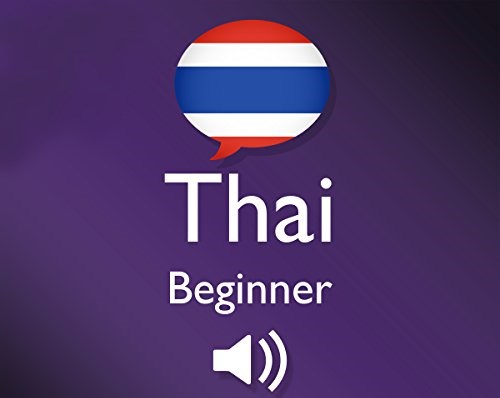
One of the things many first-time English teachers in Thailand worry about when they start to teach English is not being able to speak Thai.
Do you need to speak Thai when teaching English in Thailand? Do you stand more of a chance of getting a good job if you do? Will you be able to communicate better with your Thai students if you speak their language? Should you take a Thai language course before you move to Thailand?
All of these questions are things English teachers worry about before moving to Thailand to teach when, in fact, they really do not need to.
Do you need to speak Thai when teaching English in Thailand?
I did not speak much Thai for at least the first two years I taught English in Thailand. Not only did I not need it in the classroom or at school as a whole, I did not need it when I was at the supermarket, ordering meals in restaurants or going out to the movies or clubs with my friends.
That is because I could always find someone who spoke English and, if I couldn’t, I could get by with facial expressions and hand signals.

Of course, being able to speak Thai may be useful for a first-time teacher in Thailand when it comes to their every day life, just like being able to speak any foreign language is a plus, but…it is not remotely necessary and can sometimes even be frowned upon by school administrators.
This is due to most schools mandating both a native English speaker and a Thai teacher in the classroom at the same time.
This allows the native English speaker to teach English to the students while the Thai teacher, who is also able to speak English, can translate anything they do not understand into Thai.
Even on days I did not have a Thai teacher in the classroom with me, however, I still did not find it necessary to be able to speak Thai.
Kids can pick up on things quite quickly even with just facial expressions and hand signals. Plus, there is always at least one student in every classroom that is able to translate for the rest.

Will being able to speak Thai help you get a better teaching job?
You may be surprised to learn many Thai school administrators prefer their native English teachers to not speak Thai – at least not to the students anyway.
So, no, in most cases being able to speak Thai will not help you get a better teaching job in Thailand.
This is because most school administrators believe the more their students are exposed to English, the higher the chance there is they will learn it quickly.
If an English teacher is explaining grammar and vocabulary in Thai, however, this can often cause the students to concentrate on their own language rather than on the English they should be learning.
So, no, do not take a Thai language course with the sole purpose of using it to get a better teaching job once you arrive in Thailand as, in 99% of cases, it will not help you at all.

Should you learn Thai if you are teaching English in Thailand?
I am of the school that believes it is always beneficial to be able to speak at least one foreign language so, yes, if you plan on living in Thailand longer than a few months, being able to speak Thai is useful.
I began to take Thai classes in the middle of my second year in the country at Bangkok’s Piammitr School as I knew by then I would be staying in Thailand long-term. But, even then, I didn’t take Thai language classes to help me communicate with my students but instead took them so I could communicate with Thai friends better.
At that point, I took Thai language classes five mornings a week for three months until I reached intermediate level. I then switched to free language apps to increase my vocabulary, grammar and reading skills and improved my Thai skills even more.
Nowadays, I am still not completely fluent in Thai as that seems to take many years of study to fully master, but I can speak enough to make shopping, taking taxis, doing business with phone companies and banks and talking to my Thai friends even easier.
I also have enough grasp of the language that, if I have a problem, I can explain what my problem is and get help from a Thai to solve it.
In other words, if you want to learn Thai, I recommend you do as it will make your stay in Thailand even more fun and even more pleasurable. You will understand the culture more as well.
If, however, your only goal in learning Thai is to make things easier for you in the classroom and you do not plan on staying in Thailand for longer than a few months then, no, there is no need for you to learn it.
Unless, of course, you want to.

Thai language apps
Remember too, when I first moved to Thailand in 2003, we did not have access to the many free Thai language apps like we do today. That was why my exposure to Thai came from CD language courses I bought and in-person group classes I paid for.
Nowadays, however, there are so many free Thai language apps available, you can teach yourself a huge amount of Thai before you ever take a course.
You can also use those apps to explain basic English words to your students in Thai if you absolutely must, as well as use them when out shopping, taking taxis, or even at the bank.
I recommend the following Thai language apps as a great place to start when learning the language, as well as apps you can have on your phone in the event of a language emergency:
Thai Pod 101 – Excellent video and audio classes (watch the first video below)
Thai Pod 101 on YouTube — hundreds of free videos to watch
Learn Thai Language with Master Ling — short lessons, excellent for learning the Thai alphabet quickly
Drops — Learn Thai Language for Free — very short lessons you can learn in a few minutes a day in a game-like format
Learn to Write the Thai Alphabet — easy writing practice
Simply Learn Thai — over 1,000 helpful Thai phrases recorded by a native speaker
